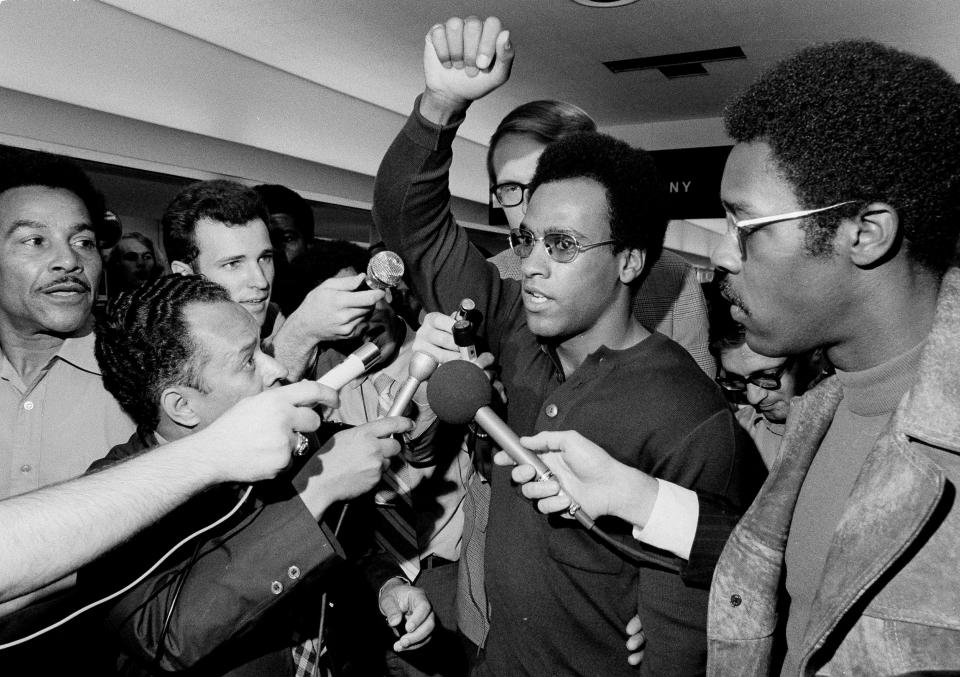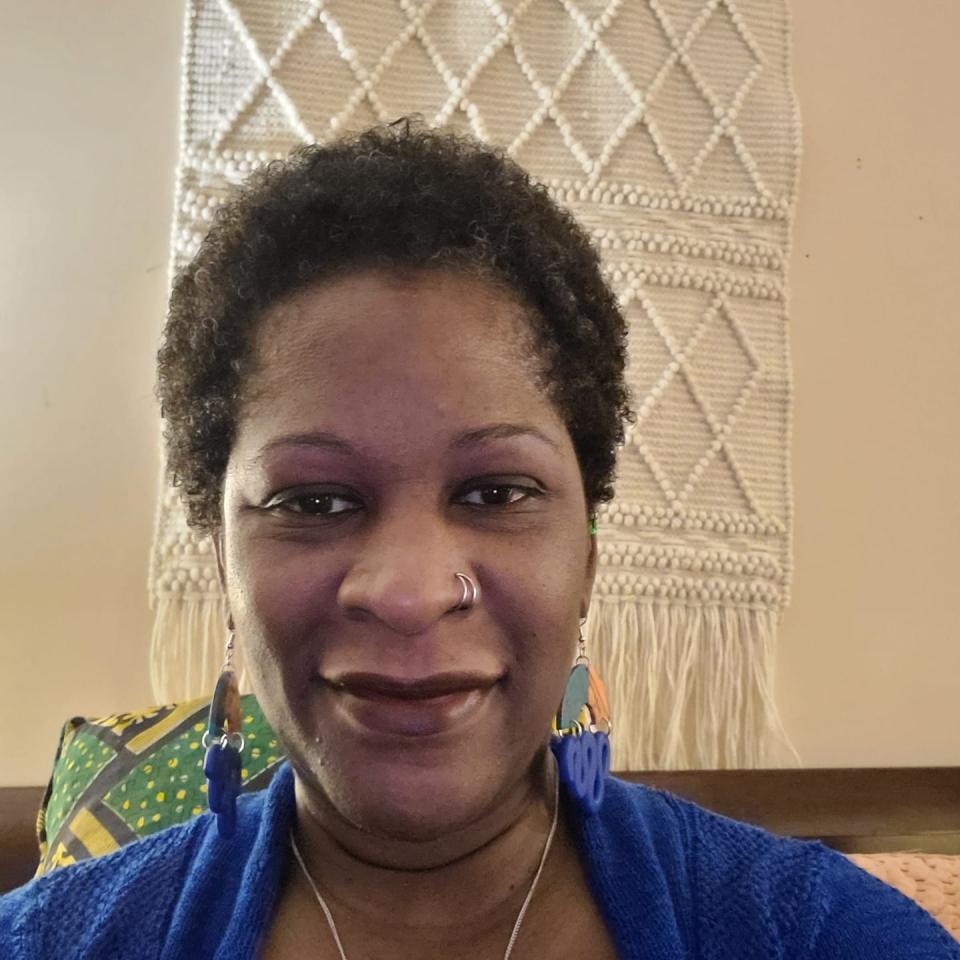Howard University's classics department is an incubator for Black equality. Don't close it.
At a conference on using Socratic dialogue in the classroom through the Bill of Rights Institute, an attendee mentioned that the Howard University classics department, the only such department at a historically Black college or university in the country, was under the threat of being closed. My heart sank at the news.
I had just opened my own classically inspired school, The Living Water School, and was primarily focused on its success, but I could not get this news out of my mind. That conference was several years ago, but this month, the department announced it is closing and repositioning the faculty.
My dissertation focused on the history of classical study in the Black community and took a look at how Black students respond to studying the works of the canon. In both cases, I found that studying classics — the study of ancient Greece and Rome — did not always cause Black people to deny their heritage or to seek to assimilate, but instead it gave them the words and language to fight for equality. It also incited a desire to fight for freedom from an oppressive society.
Finally, in a society that often sees them as less than human, the classical canon also gave them a strong sense of their own humanity, giving them the self-confidence to believe in themselves when society sought to destroy that sense of self-worth.
A force for liberation
For example, Huey Newton, the co-founder of the Black Panthers, taught himself to read after graduating high school by reading Plato’s "Republic" repeatedly. He became fixated on the "Allegory of the Cave," where a group of men live and determine what is going on in the outside world by the way the light from the outside reflects the shadows on the cave wall. They got a distorted view of reality by only believing what the shadows revealed to them. It was not until one of the men went outside that he saw how wrong their conclusions were.
When Newton read that, he was instantly inspired to “find a way to liberate Black people.” I find this very powerful, because we are often told now that classics were used to oppress Black people or to force us to assimilate. Yet there is nothing about the Black Panthers that speaks to assimilation.

Or take the work of Martin Luther King Jr., whose philosophy for the civil rights movement is influenced by many classical authors, such as Plato, Sophocles and Aeschylus. How can we fully understand the fullness of what King was seeking to accomplish if we are illiterate in the works he read that infused his work?
Howard's classical legacy
The beauty about Howard University is that, since its founding, each student has at least some exposure to the works of the canon. I believe this classical foundation is what produced people like Justice Thurgood Marshall, a graduate of Howard's law school who did more than just practice the trade of his career but served all of humanity through his work.
To read or not to read: No, Shakespeare isn't getting 'cancelled.' There's plenty of room for disruptive texts.
The list of Black scholars who have come out of Howard and been touched by the classics is extensive: Toni Morrison minored in classics; Zora Neale Hurston took classes in the field; Chadwick Boseman had classical theatre training while a student at Howard, and was taught by the actress Phylicia Rashad. I minored in theatre at Howard, and we are all well versed in Greek tragedy and Roman comedy.
Alain Locke believed so much in reading from the canon that the hall where the classics department is housed is named after him. Locke, who taught at Howard, became the first African American Rhodes Scholar and is considered the father of the Harlem Renaissance.
And let us not forget the brilliant scholar Frank Snowden, who did extensive work to show the African presence in ancient Greece and Rome and to show the absence of racism in that time as we understand it today. From this work came the books "Blacks in Antiquity" and "Before Color Prejudice." Both books debunk myths that have led to the racist way that classics are sometimes taught in schools.
All of this and more came out of Howard University. So much truth lies within the classics department. To close it down would be a tragedy and a disservice to all of humanity.
Keep the canon alive
In 2020, I was given the honor to teach in the classics department at Howard, and the focus was "Blacks in Classical Studies." The works of the canon are often taught excluding Black voices, but this course corrected that. In this course, we traced the African presence in ancient Greece and Rome and traveled through time into the Middle Passage, slavery, Reconstruction, civil rights and beyond, showing how classics and the works of the canon informed the works of some of our greatest activists and freedom fighters.
Schooling in a pandemic: Hey Joe Biden, COVID heroes at Catholic schools show road to reopening
The pattern revealed is that over and over, each person who found themselves in an oppressed situation read classics and their mind was liberated and their soul was stirred — to fight at any cost to change their situation.

In his autobiography, Frederick Douglass said this about reading the works of the canon:
“These were choice documents to me. I read them over and over again with unabated interest. They gave tongue to interesting thoughts of my own soul, which had frequently flashed through my mind, and died away for want of utterance. The moral which I gained from the dialogue was the power of truth over the conscience of even a slaveholder.”
When I came to Howard, I had no idea that I would find myself, along with the students and faculty, at the center of a battle to defend the classics, but I am honored to share what I have learned in this journey with any who will listen. Hopefully, we can come to see the canon differently than what centuries of racism have taught us to believe about them.
The classical works of the canon are for all of us, for they all tell the human story and connect us all. My hope is that Howard University will keep them alive so all of us, especially future generations of Black students, can know the truth about the human story.
Anika T. Prather is an educator in classics and liberal arts. She is the founder of The Living Water School and currently an adjunct professor in the classics department at Howard University. Follow her on Twitter: @AnikaFreeindeed
You can read diverse opinions from our Board of Contributors and other writers on the Opinion front page, on Twitter @usatodayopinion and in our daily Opinion newsletter. To respond to a column, submit a comment to letters@usatoday.com.
This article originally appeared on USA TODAY: Howard University, don't close classics department for Black students

